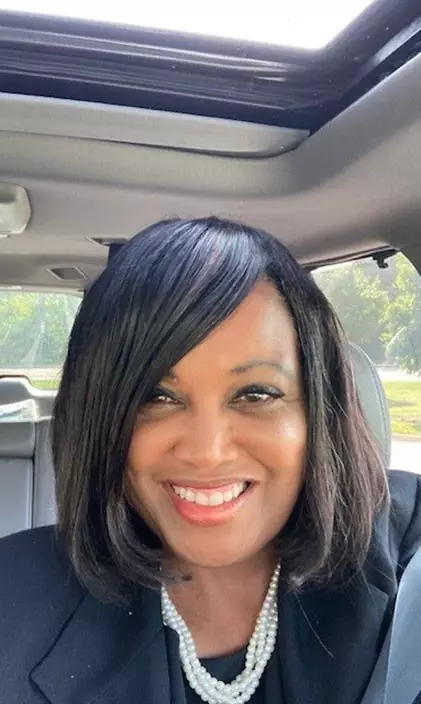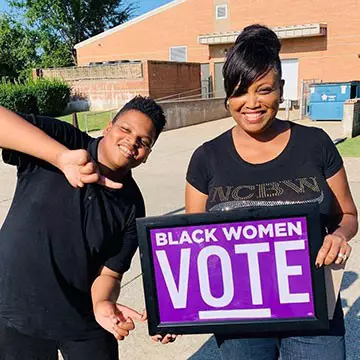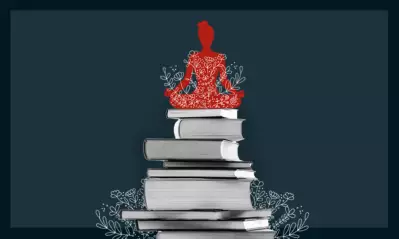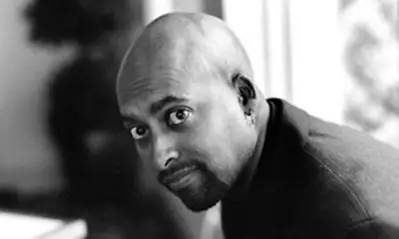Committed to faith and service

Written by Elizabeth Exline
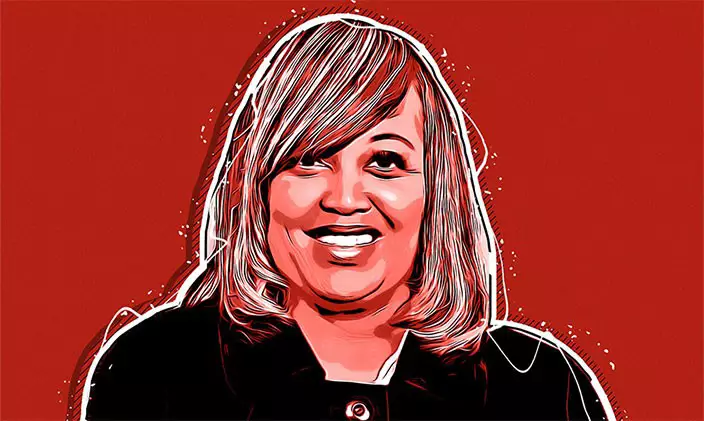
Like many other working adults who have had multiple jobs over the course of their careers, University of Phoenix alumna Tammie Otukwu boasts an impressive work ethic. But when it comes to backstories, Otukwu’s is all her own.
Otukwu was born at Fort Meade in Maryland. A self-described Army brat, she traveled around the country and to Germany before she was 10 and her dad retired from the military. This early exposure set the stage for Otukwu’s own military career; she still marvels at how a uniform can tell a story without the person wearing it ever uttering a word.
Eventually, Otukwu’s parents’ marriage ended, and Otukwu and her mother left behind a somewhat unstable living arrangement to move to Georgia, where Otukwu’s maternal grandmother lived.
“That was probably the best thing for me,” Otukwu says. Not only was her grandmother a no-nonsense mother of more than 10 children, she was also a force to reckon with.
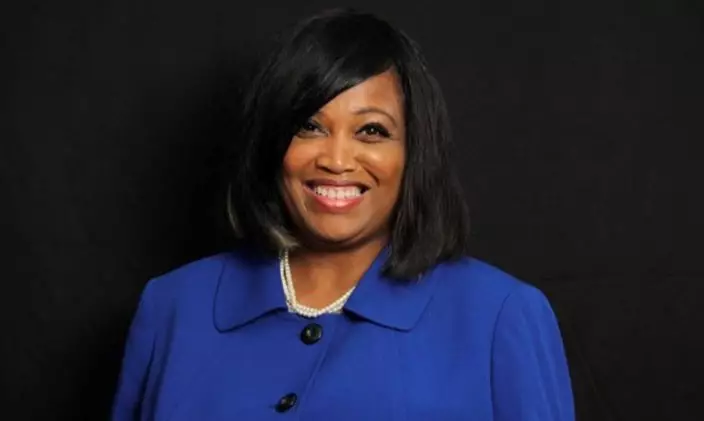
Could Otukwu, for example, skip church where her grandmother served as an usher?
“Oh no,” Otukwu says with a wide-eyed laugh. “Not if I wanted teeth in my head!”
In that Baptist church, Otukwu found a faith and a community that would accompany her throughout her life.
Otukwu went on to marry her high school sweetheart. When he enlisted in the military, she and their small daughter traveled with him until they divorced a few years later.
At that point, Otukwu knew it was time to develop a game plan for her future. And so she enlisted in the Army herself.
“I remember the first day of basic training, and drill sergeants were yelling and screaming,” Otukwu recalls. “I was thinking, ‘This is nothing. Now my grandmother, she was for real.’”
Otukwu planned to serve for four years and then get her education, but her military career ended up spanning 26½ years. During that time, she pursued two careers: first as a dental hygienist, then as a human resources specialist.
She also pursued her education. She earned not one but two master’s degrees from University of Phoenix, an institution she chose largely for its flexibility. She earned her Master's in Management online in 2006, when she had her eye on a promotion and wanted to distinguish herself. She earned her Master of Psychology online
six years later when, she says, “I was looking at the future and realizing that when I became a civilian, I needed to make sure that my resumé looked good. … I wanted to make sure that I had a lot to bring to the table.”
Throughout, Otukwu deepened her commitments to both her faith and her service. Signing up for the Active Guard Reserve , for example, was a possibility for which she sought divine guidance. She wasn’t sure it was the right move, but when she got her orders and saw that she started on the same day as her birthday, she knew she was on the right track.
Otukwu was stationed in Nashville, where she met her second husband. Just talking about him makes Otukwu smile; today, the two share a teenage son.
Nashville was also where Otukwu returned after retiring from the military. Her first civilian position was with Operation Stand Down Tennessee , a nonprofit dedicated to helping military veterans with benefits, career services, transitional housing and more. There, she discovered just how many veterans struggle with homelessness and suicidal ideation.
Otukwu’s work with Operation Stand Down Tennessee precipitated a multifaceted commitment to do more. Today, Otukwu continues to serve veterans as a legal administrative specialist for the VA. She also wrote a book, War After the Military , which started out as a thank-you letter to her pastor and her mother but quickly morphed into an exploration of what it means to transition out of the military
.
With the book, Otukwu says she wanted to give civilians more reasons to help military veterans. She lives what she preaches. In addition to her day job and her book, Otukwu works as a life coach, mostly with veterans. She speaks the same language, she says, which helps her be more effective.
Outside of the military, Otukwu focuses on her community. She serves as the current chair of the health committee of the National Coalition of 100 Black Women in Nashville, an organization that advocates for Black women and girls.
Of all her disparate and compelling roles, it is the role of mother and grandmother that she values the most. Motherhood, after all, draws on Otukwu’s dual commitment to hard work and service. Motherhood is led by her faith, and it is partly why she is so driven to create both personal stability and a wider sense of community.
We asked her some questions about the importance of service and why you should always have your eye on what’s next.
What motivates you to serve others?
My mother. I think she really helped shape my work ethic because she was always someone who was very busy.
One of the most important things about my job is that I work from home. I get to spend time with my son before he gets on the bus, and I can put a meal on the table when he gets off the bus. I got that from my mom, because no matter what the day looked like at school, my mom was right there at home so I could tell her about my day.
How is service a pathway to communication and collaboration?
When you’re a soldier, you always have the mindset that, if a problem is presented to you, you automatically come up with a solution.
Being a life coach, however, allows you to step back and put some ownership on the person who is actually having the problem. You may come up with a solution to that problem, but the person who has the problem has to really buy in [on the solution].
So, you listen to the person and then, together, you all talk and eventually … you can get that person to commit to a time frame and walk that problem through.
By always looking ahead, you made some of your most important life decisions, including joining the military and earning two master’s degrees. How do you stay focused on the future?
At one point, I was actually cutting orders. Cutting orders means that I was responsible for transferring [soldiers] to the units that they were going to deploy. I would see soldiers who had to get ready in three days, four days, seven days to leave their family for a year.
I looked at my education, and I thought, “If I were deployed overseas for a year and got injured, that could really change my career.”
You gotta be able to sustain yourself. So, what that taught me is that tomorrow’s not promised. You better get what you can get when you can get it. Because one instance could change the whole trajectory of your career.
You’ve had multiple careers over your lifetime. You wrote a book. You advocate and you coach. What’s next?
I don’t think I could sit down!
I did a career-day at a local middle school last month, and it was amazing. I took my vision board, and we talked about the vision board, and I challenged each student to create a vision board, because they really need to be looking at the next three or five years.
I just wanted to really be able to inspire, so maybe public speaking or mentoring is next for me.

ABOUT THE AUTHOR
Elizabeth Exline has been telling stories ever since she won a writing contest in third grade. She's covered design and architecture, travel, lifestyle content and a host of other topics for national, regional, local and brand publications. Additionally, she's worked in content development for Marriott International and manuscript development for a variety of authors.
This article has been vetted by University of Phoenix's editorial advisory committee.
Read more about our editorial process.
Read more articles like this:
